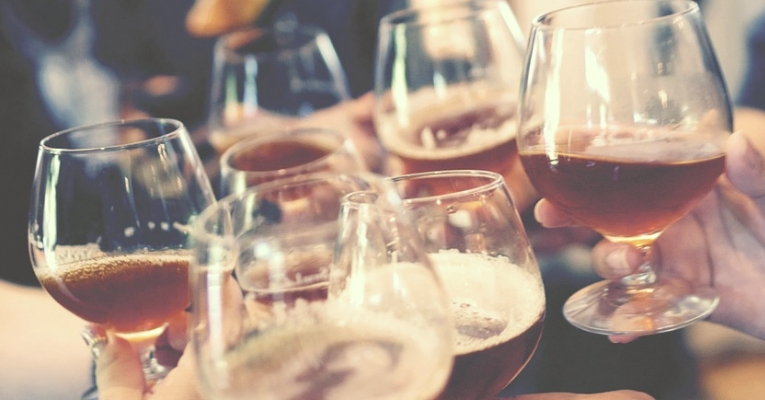Science & Tech
‘Hangxiety’: Why Alcohol Gives You Nasty Hangovers and Anxiety

It’s a familiar story. After a hard day at school or work, we stop by the bar or a friend’s house to enjoy a drink or two, which soon turns to three, four, maybe more. According to conventional wisdom, we do this because it gives us a temporary respite from our problems, lets us shake off some of the day’s baggage and release a bit of that pent-up anxiety.
But what if the alcohol itself is a major source of anxiety? What if we’re simply putting off that anxiety only to have it return with a vengeance the next day in the form of a depressing mixture of guilt, stress and self doubt?
According to David Nutt, professor of neuropsychopharmacology at London’s Imperial College and former UK government drug adviser who was fired for saying alcohol is more dangerous than ecstasy and LSD, alcohol is indeed the culprit for the crippling anxiety one feels after a night out on the town.
Speaking to The Guardian, the scientist explained that the first couple of drinks we imbibe have a calming effect on the brain by inhibiting our nerve cell activities, causing fewer neurons to fire. Because alcohol targets our gamma-aminobutyric acid receptors or “Gaba,” we feel good.
Nutt explained:
“Alcohol stimulates Gaba, which is why you get relaxed and cheerful when you drink.”
However, by the third or fourth drink, glutamate is blocked. This is why our inhibitions drop, because as Nutt puts it, “more glutamate means more anxiety,” which is why “when people get very drunk, they’re even less anxious than when they’re a bit drunk.” Hence the state of blissful, smiling and cheery inebriation.
This is where the trouble starts.
Sensing a chemical imbalance, the body begins producing insulin to get our blood sugar back to normal. Meanwhile, Gaba levels are brought back down to normal while our glutamate production is cranked up. Once the drinking ends, Gaba functions are lowered and our glutamate has spiked, leading us to a sorry state of anxiety.
Alcohol also leads to seizures, which can plunge people into the hell of withdrawal symptoms, Nutt explained. The brain struggles to return to a balanced state, taking at least a day to bounce back to normalcy – or years, if you grab “the hair of the dog that bit you last night,” a term referring to a morning alcoholic beverage to ease the transition from a partying state to a hangover.
And if you’re trying to sleep off the drunkenness, your rest is sure to be anything but peaceful. Nutt added:
“If you measure sleep when people are drunk, they go off to sleep fast. They go into a deeper sleep than normal, which is why they sometimes wet the bed or have night terrors. Then, after about four hours, the withdrawal kicks in – that’s when you wake up all shaky and jittery.”
Alcohol also causes an uptick in noradrenaline, colloquially known as the fight-or-flight hormone. According to Nutt, this hormone “suppresses stress when you first take it, and increases it in withdrawal … Severe anxiety can be considered a surge of noradrenaline in the brain.”
And if you’re quivering with horror over your inability to remember your drunk-texts, drunken jigs, or abortive attempts to flirt last night, you can blame the glutamate-blocking effects of alcohol that also block your ability to remember things.
But “hangxiety” generated by alcohol abuse affects different people in different ways, according to a study published in the journal Personality and Individual Differences, which showed that those more prone to shyness had much higher levels of anxiety the day after a bender than those who were extroverts. The study also suggested that those prone to the worst cases of hangxiety were also those prone to problematic alcoholism.
So while drinking may be able to unplug your short-term bouts of anxiety, the newest research suggests that you may be not only kicking the can down the road, but heading in the direction of far more damaging long-term consequences.
It may be a good idea to put down the drink and face the source of your anxiety in a more healthy, inexpensive, and less self-destructive way.
Typos, corrections and/or news tips? Email us at Contact@TheMindUnleashed.com
